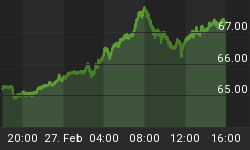China Deflation Fears Grow
Bad news stories continue in China today with reports of more capital controls, devaluation fallout, and another drop in the Producer Price Index (PPI).
Reuters reports China Deflation Fears Grow as Producer Prices Sink Most in Six Years.
China's manufacturers slashed prices at the fastest rate in six years in August as commodity prices fell and demand cooled, signaling stubborn deflation risks in the economy and adding to expectations for further stimulus measures.
The producer price index (PPI) fell 5.9 percent in August from the same period last year, its 42nd consecutive month of decline and the biggest drop since the depths of the global financial crisis in late 2009, data showed on Thursday.
Official and private factory surveys last week also showed manufacturers laid off workers at a faster rate last month as their order books shrank.
More Capital Controls
The Financial Rimes reports Beijing Clamps Down on Forex Deals to Stem Capital Flight
China has tightened its capital controls, in a sharp reversal of its market liberalising rhetoric, as it struggles to contain the fallout from last month's devaluation of the renminbi.
The August 11 devaluation unleashed turmoil on global stock markets and policy confusion at home, forcing the central bank to spend up to $200bn to support the currency. The prospect of an interest rate rise in the US has further encouraged capital flight.
The Safe [State Administration of Foreign Exchange] has ordered banks and financial institutions to pay particular attention to the practice of over-invoicing exports, used to disguise large capital outflows. The administration confirmed the existence of the memo, but declined to comment further.
For the first time since it began internationalising its currency a few years ago, the central bank has also been intervening heavily in the offshore renminbi market to narrow the gap between the onshore (CNY) and offshore (CNH) exchange rates.
Analysts and people familiar with the matter say Beijing has spent up to $200bn defending the currency, but the net impact on the reserves is disguised by fluctuating valuations of reserve assets and other inflows into the reserves.
"They have gone from a credible peg that cost them almost nothing to a weak peg that nobody believes and that is costing them more than $10bn a day to defend. They're paying huge sums for something they had for free just a few weeks ago," said one person with close ties to China's central bank.
In another move to lighten its burden of defending the currency, the central bank informed banks last week that it would soon impose a new 20 per cent reserve requirement on all currency forward positions, in a move aimed at reducing heavy speculation on continued renminbi devaluation.
All market participants will be required to deposit the equivalent of 20 per cent of their forwards book with the central bank for one year at zero interest.
This will considerably increase the cost of currency hedging for Chinese companies, which had a total of $1.2tn in outstanding foreign currency debt by the end of March and are widely expecting further devaluation in the renminbi.
Quite the Reversal
It was not that long ago that hedge funds had massive bets the value of the Yaun would rise. China even took steps to stop "hot money" from flowing into the country.
Hot money, and then some is now going the other way.
By the way, please recall all the inflationists telling China to stockpile copper, lead, and other commodities instead of holding US treasuries, frequently labeled "worthless certificates of confiscation".
In retrospect, pro-cyclical stockpiling of commodities now looks foolish to nearly everyone. I took the other side of the argument at the time, as did Michael Pettis.















